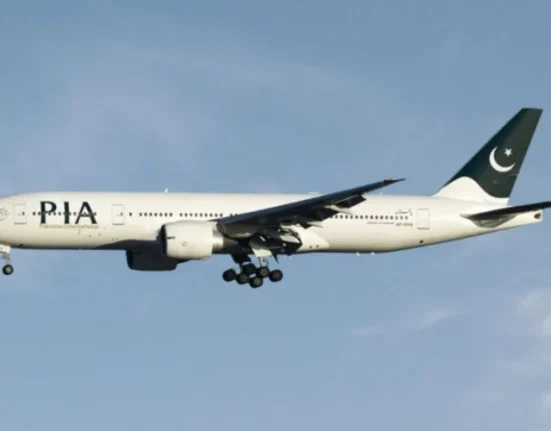A dramatic escalation in military hostilities between India and Pakistan on Wednesday, May 7, 2025, forced an abrupt eight-hour suspension of flight operations across Pakistan’s major airports, severely affecting Hajj travel plans and leaving thousands of intending pilgrims stranded during a crucial departure window.
The suspension, which began around 2:00 AM local time following cross-border missile strikes, impacted key international airports in Karachi, Lahore, and Islamabad. The country’s Civil Aviation Authority (CAA) issued an emergency Notice to Airmen (NOTAM), grounding all scheduled flights until air traffic resumed shortly after 10:00 AM. The timing of the disruption coincided with the height of outbound pilgrim movement as Muslims from Pakistan began their sacred journey to Saudi Arabia for Hajj 1446 AH.
According to reports, the escalation began when India launched what it described as a targeted military operation named “Operation Sindoor,” allegedly aimed at neutralizing terrorist camps within Pakistani territory. Strikes were confirmed in regions including Punjab and Pakistan-administered Kashmir. India maintains the operation was in retaliation for a deadly militant attack in Kashmir earlier in the week.
However, Pakistan’s authorities have pushed back against India’s claims, accusing its neighbour of striking civilian targets. Local officials confirmed multiple casualties and damage to infrastructure, including religious and residential sites. Among the reported damages were mosques destroyed in Bahawalpur, Muzaffarabad, and Kotli, as well as civilian homes and a dam struck in towns like Muridke and Shakargarh. These developments triggered swift condemnation across sections of Pakistani society, with mounting calls for international intervention.
As airspace was abruptly shut, the ripple effects were immediate and deeply felt. Elderly pilgrims, many of whom had already checked in and were awaiting boarding inside terminal halls, faced hours of distress, confusion, and limited access to reliable updates. Airlines and airport officials scrambled to manage the congestion, with communication breakdowns adding to the chaos.
Although India’s airports continued to operate during the period, the cross-border hostilities raised wider concerns about the security of South Asian air corridors, particularly for pilgrims originating from both countries. Analysts have warned that any prolonged instability could disrupt more outbound Hajj flights and force detours or delays across the region’s aviation schedules.
Adding to the tension, Pakistan’s military claimed it successfully intercepted and downed multiple Indian aircraft during the exchange, with wreckage reportedly landing on the Indian-administered side of Kashmir. While casualty numbers remain unverified by independent sources, both governments appear locked in an increasingly volatile narrative battle.
Despite the disruption, authorities in both nations have reiterated their commitment to ensuring the safe and timely passage of all pilgrims heading to the Kingdom of Saudi Arabia. Pakistani officials have begun clearing the backlog of affected flights, although delays are expected to persist over the coming days.
This incident serves as a stark reminder of how fragile religious travel arrangements can become in the face of geopolitical instability, particularly in a region with a long history of border tensions. As Hajj 2025 approaches its peak period, the international community continues to monitor the situation closely, with the safety of millions of pilgrims hanging in the balance.

